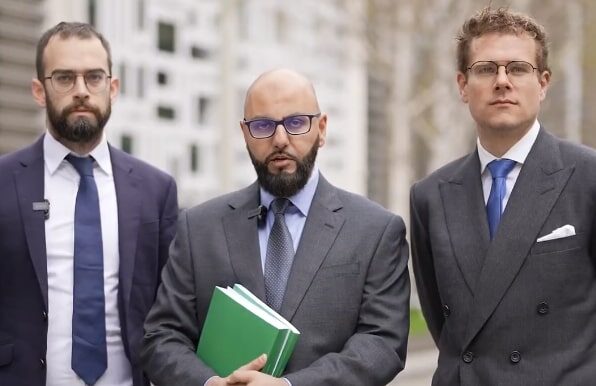Hamas is suing the British Government for violating its human rights. That’s not a joke — or rather it is, but on the British public.
The Palestinian terrorist organisation has launched a legal challenge against the Home Office’s decision to proscribe it for being a terrorist organisation, a move it claims violates its rights to freedom of speech and protest. As a showcase for the increasingly obvious absurdities of Britain’s current system, it really is hard to beat.
First, it has shown once again the shameless double standard demanded by certain lawyers. They simultaneously tout their association with various causes and denounce anybody who criticises those associations as undermining the so-called “cab rank rule”, referring to the standard whereby a barrister has to accept the next case that comes along.
Such objections are especially specious in this case. For one thing, the cab rank principle only applies to barristers, not solicitors’ firms. Moreover, the cause is usually at least a broad-spectrum defence of human rights per se rather than explicit support for a particular group, as Riverway Law appears to have advertised.
But it also highlights a problem with the broader system. Because if we take the official logic of human rights at face value, the mere fact of Hamas’s suit — if not perhaps the actual legal case — is not absurd at all.
The whole point of universal human rights, after all, is that they are universal. There has never been a regime which is not prepared to extend good treatment to its supporters and few unwilling at least to generally leave compliant subjects alone. Human rights are specifically supposed to be safeguards for individuals whom the mob — or the state, with the mob’s tacit consent — might target.
One can obviously disagree with this highly slanted and beneficent take on human rights, but it is the basic logic of the system. And if you conceive of rights in the narrow fashion, as when the European Convention was first drafted, then they make more sense. Freedom from torture, for example, is most important to people whom the state might actually want to torture — which is to say enemies of the state, real or perceived.
Most people, when it comes down to it, believe that rights can and should have limits, if not in the abstract then in practice. Where those limits fall is a question that each society and generation has to determine for itself, which is why historically even campaigns for universal rights have been explicitly political projects.
Under such a framework, the Government is able to make common-sense distinctions between different groups and attempt to strike a proper balance between competing parties where their rights conflict. In this case, there is quite an obvious conflict between Hamas supporters’ right to free expression and the right of British Jews to be shielded from speech that celebrates their deaths. That is, of course, Hamas’s stated aim.
But that is emphatically not the underlying principle of the ECHR, the entire point of which is to safeguard the Convention rights from the mostly democratic governments of its signatory states. The bigger problem is that these rights have no empirical existence. Despite the cute judicial fiction about “discovering” things in rulings, judges in fact make decisions. In the decades since it was established, Strasbourg has repeatedly broadened the scope of the Convention rights, with wide-reaching implications for how we are governed, but over which politicians have chosen to exercise almost no democratic control.
So let Hamas make its case. It will lose, hopefully. But if not, we’ll have nobody to blame but ourselves. After all, the ECHR will be doing exactly what it is meant to.











Join the discussion
Join like minded readers that support our journalism by becoming a paid subscriber
To join the discussion in the comments, become a paid subscriber.
Join like minded readers that support our journalism, read unlimited articles and enjoy other subscriber-only benefits.
Subscribe